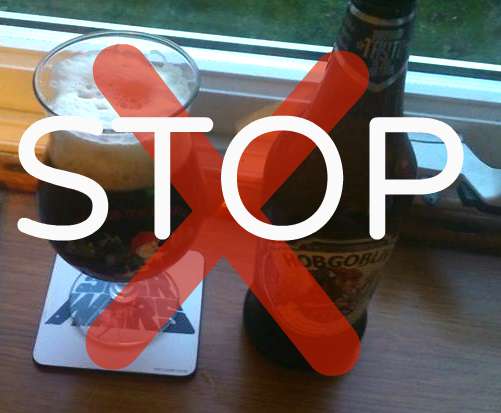How to Help a Family Member or Friend with an Alcohol Addiction
If you have a loved one who you think may be affected by alcohol addiction or you are worried that they’re becoming more and more reliant on alcohol, you’re probably wondering if there’s anything that you can do to help. Watching a friend or family member suffer is never easy, and if your loved one is convinced that they are fine and don’t need any help, this can make your situation all the harder. Here are some simple steps that you can take to help your loved one deal with and overcome their addiction.
Observe their Behavior
Different people react to an alcohol addiction problem in different ways, but if you’re noticing problems in your friend or family member’s work life, money, family and personal life, social functioning, and even their self-esteem and self-respect, you’re probably not overreacting to the fact that they may be suffering from an alcohol addiction. If they, too, notice these changes but continue to use alcoholic substances in their daily life, it is very apparent that they have a problem. By observing their behavior closely for a few days or even weeks, it will be easier for you to pinpoint the problem. This information will be useful if you decide to contact a health professional on behalf of your loved one, or need to speak to other friends or family members about it.
Different people react to an alcohol addiction problem in different ways, but if you’re noticing problems in your friend or family member’s work life, money, family and personal life, social functioning, and even their self-esteem and self-respect, you’re probably not overreacting to the fact that they may be suffering from an alcohol addiction. If they, too, notice these changes but continue to use alcoholic substances in their daily life, it is very apparent that they have a problem. By observing their behavior closely for a few days or even weeks, it will be easier for you to pinpoint the problem. This information will be useful if you decide to contact a health professional on behalf of your loved one, or need to speak to other friends or family members about it.
Contact a Professional
Although it is sometimes entirely possible for a person suffering from alcohol addiction to overcome their issue by themselves or with the help of friends and family, in most cases the help of a professional is needed whether it be simply somebody to talk to such as a therapist, or more serious help such as enrolling in a California alcohol rehab program. Alcohol addiction is a chronic disease, which means that seeking treatment is essential to manage use for the long term. Treatment can also help individuals get past alcohol withdrawal, which is a leading cause of relapse. If your loved one is refusing to speak to you about the subject of their alcohol abuse or won’t accept that they need help, you may need to contact a health professional on their behalf. You should describe the pattern of substance abuse that you have seen in your loved to the professional in order to see whether or not they think it is a problem. You should provide them with as many details that you are aware of, such as the type of alcohol, if there are any other drugs involved, how much and how often your loved one is using, behavioral patterns and negative consequences, how long it has been occurring and how your friend or family member responds to being confronted or asked about the issue.
Although it is sometimes entirely possible for a person suffering from alcohol addiction to overcome their issue by themselves or with the help of friends and family, in most cases the help of a professional is needed whether it be simply somebody to talk to such as a therapist, or more serious help such as enrolling in a California alcohol rehab program. Alcohol addiction is a chronic disease, which means that seeking treatment is essential to manage use for the long term. Treatment can also help individuals get past alcohol withdrawal, which is a leading cause of relapse. If your loved one is refusing to speak to you about the subject of their alcohol abuse or won’t accept that they need help, you may need to contact a health professional on their behalf. You should describe the pattern of substance abuse that you have seen in your loved to the professional in order to see whether or not they think it is a problem. You should provide them with as many details that you are aware of, such as the type of alcohol, if there are any other drugs involved, how much and how often your loved one is using, behavioral patterns and negative consequences, how long it has been occurring and how your friend or family member responds to being confronted or asked about the issue.
It’s Never Too Early
Although in the media it’s regularly portrayed that a person suffering from substance or alcohol abuse must hit ‘rock bottom’ before being able to recover, this is a myth that is not often the case for many people with an alcohol addiction. In fact, early identification and help in the early stages of addiction is usually a lot more effective when it comes to making a full recovery. Early identification occurs at the first signs of a problem and often before any dramatic negative consequences, such as leaving a job, the breakdown of a marriage, or ill health. If you think that your family member or friend has an alcohol abuse issue but has not experienced any such negative consequences, it is still a good idea to ensure that they get help, as it’s easier to recover if the worst has not yet happened. In general, it is easier for people to recover from alcohol abuse if their problem is spotted and treated early on, as treatment is less intense, withdrawal is easier, and there is less anxiety involved.
Help Yourself
It’s common for those closely involved with a person suffering from an alcohol or drug addiction to also suffer physically, with aches and pains, depression, anxiety, and even digestive problems being reported as common symptoms of partners and family members of those suffering from alcohol abuse. You should remember your own health at all times, and make sure that you are also getting the help that you need. If there are children involved, you should also ensure that their lives are as stable as possible throughout the process.
Have you suffered from an alcohol addiction in the past and successfully overcame it? Do you have any great advice for those trying to help a loved one overcome their addiction? Or, have you helped a family member or friend overcome an alcohol addiction? We’d love to hear about your experiences in the comments.



